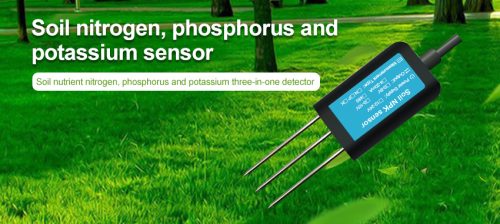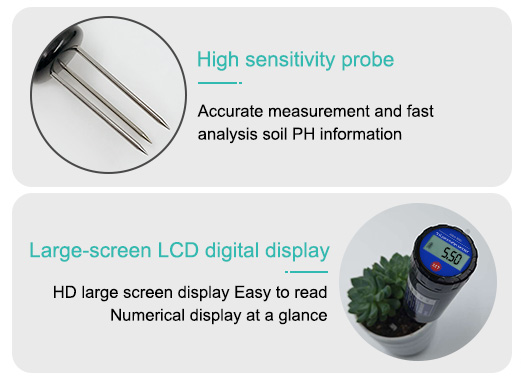The Smart Soil NPK Sensor represents a groundbreaking innovation in the field of agriculture and soil management. This advanced sensor technology offers farmers and agricultural professionals the ability to precisely monitor and optimize the levels of essential nutrients in the soil, namely nitrogen (N), phosphorus (P), and potassium (K). By providing real-time data on soil nutrient content, the Smart Soil NPK Sensor enables informed decision-making, leading to improved crop yields, resource efficiency. In this essay, we will explore the significance of the Smart Soil NPK Sensor, its underlying technology, applications in agriculture, and the potential impact on the future of farming and food production.
Understanding the Smart Soil NPK Sensor

The Smart Soil NPK Sensor is a cutting-edge device designed to measure the concentrations of nitrogen, phosphorus, and potassium in the soil. These three nutrients are crucial for plant growth and development, playing essential roles in various physiological processes. Nitrogen is vital for leaf and stem growth, phosphorus contributes to root development and flowering, and potassium is involved in overall plant health and disease resistance. The Smart Soil NPK Sensor utilizes advanced sensing technologies to accurately assess the levels of these nutrients, providing farmers with valuable insights into the soil’s fertility status.
Working Principle and Technology
The functioning of the Smart Soil NPK Sensor is based on the principles of spectroscopy and chemical analysis. The sensor employs non-destructive spectroscopic techniques to analyze the soil composition and quantify the concentrations of nitrogen, phosphorus, and potassium. Near-infrared (NIR) spectroscopy, in particular, is commonly used in the Smart Soil NPK Sensor to determine nutrient levels by measuring the interaction of soil components with specific wavelengths of light. This non-invasive approach allows for rapid and accurate assessment of soil nutrient content without the need for time-consuming and labor-intensive traditional laboratory tests.

In addition to spectroscopy, the Smart Soil NPK Sensor may incorporate other advanced technologies, such as machine learning algorithms and data analytics, to process and interpret the collected soil nutrient data. Machine learning algorithms can analyze large datasets to identify patterns and correlations, enabling the sensor to provide actionable recommendations for soil management practices. Furthermore, the integration of wireless connectivity and cloud-based platforms allows for real-time data transmission and remote monitoring, empowering farmers to make timely adjustments to their agricultural practices.
Applications in Agriculture
The applications of the Smart Soil NPK Sensor in agriculture are diverse and far-reaching. One of the primary uses of the sensor is to guide precision nutrient management, allowing farmers to apply fertilizers and amendments in a targeted manner based on the specific nutrient requirements of their crops. By avoiding over-application of fertilizers, which can lead to environmental pollution and resource wastage, and under-application, which can limit crop productivity, the sensor promotes sustainable and efficient use of soil nutrients.

Moreover, the Smart Soil NPK Sensor facilitates site-specific management strategies, enabling farmers to address spatial variations in soil fertility within their fields. By creating nutrient application maps based on the sensor data, farmers can implement variable rate fertilization, tailoring input levels to the specific needs of different soil zones. This approach optimizes resource utilization and promotes uniform crop growth across the entire field.
Furthermore, the sensor’s ability to monitor changes in soil nutrient levels over time allows for dynamic adjustments to fertilization schedules and practices. By continuously tracking nutrient dynamics, farmers can adapt their management strategies to account for seasonal variations, crop growth stages, and environmental factors, ensuring that plants receive the appropriate nutrients at the right times.
Conclusion
The Smart Soil npkmeter represents a transformative innovation in agriculture, offering farmers the ability to monitor and manage soil nutrient levels with unprecedented precision and efficiency. By harnessing advanced sensing technologies, data analytics, and wireless connectivity, the sensor empowers farmers to make informed decisions that optimize nutrient management, enhance crop productivity, and promote environmental sustainability. As the agricultural industry continues to embrace digital technologies and data-driven approaches, the Smart Soil NPK meter play a pivotal role in shaping the future of farming and food production, contributing to a more sustainable and productive agricultural landscape.